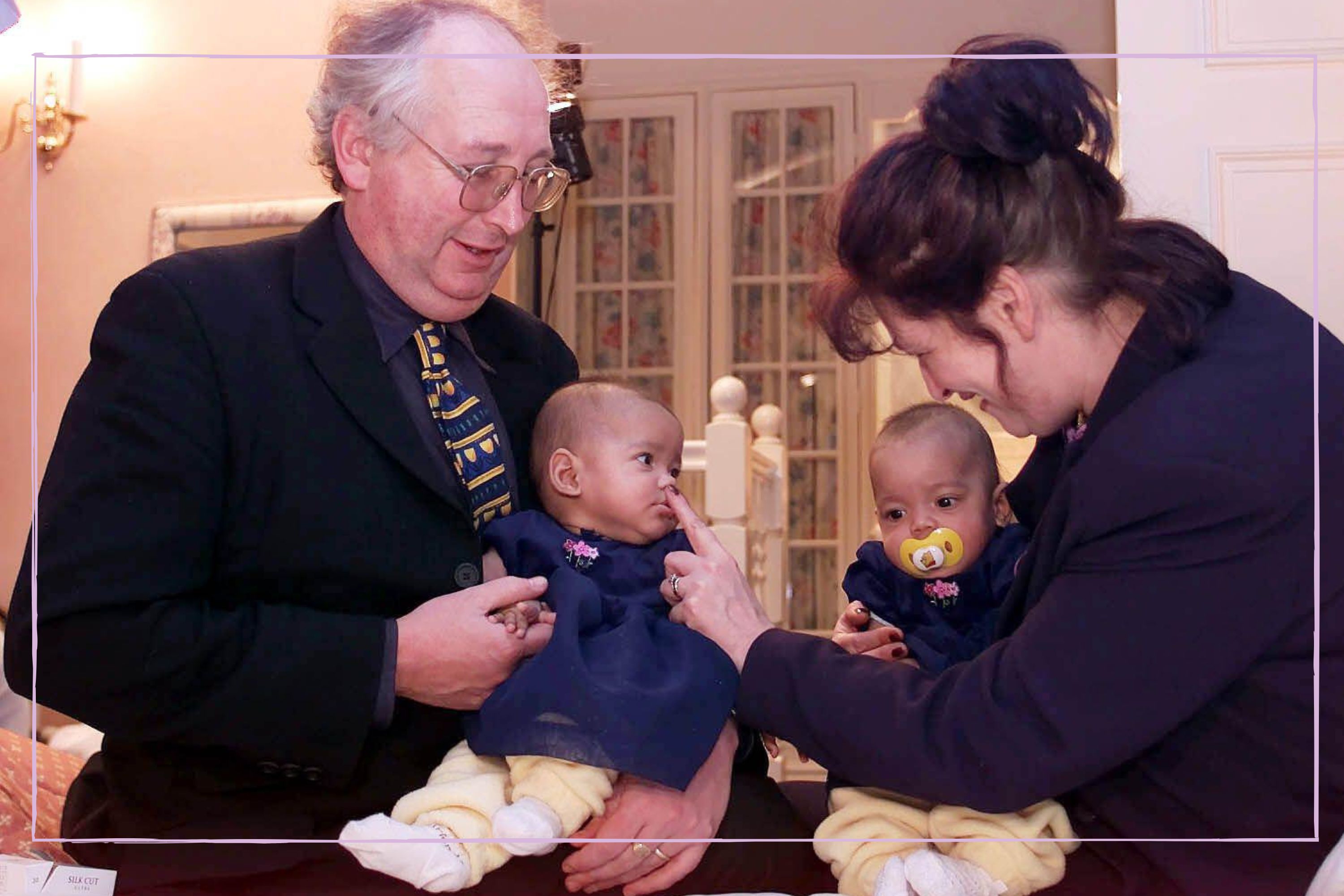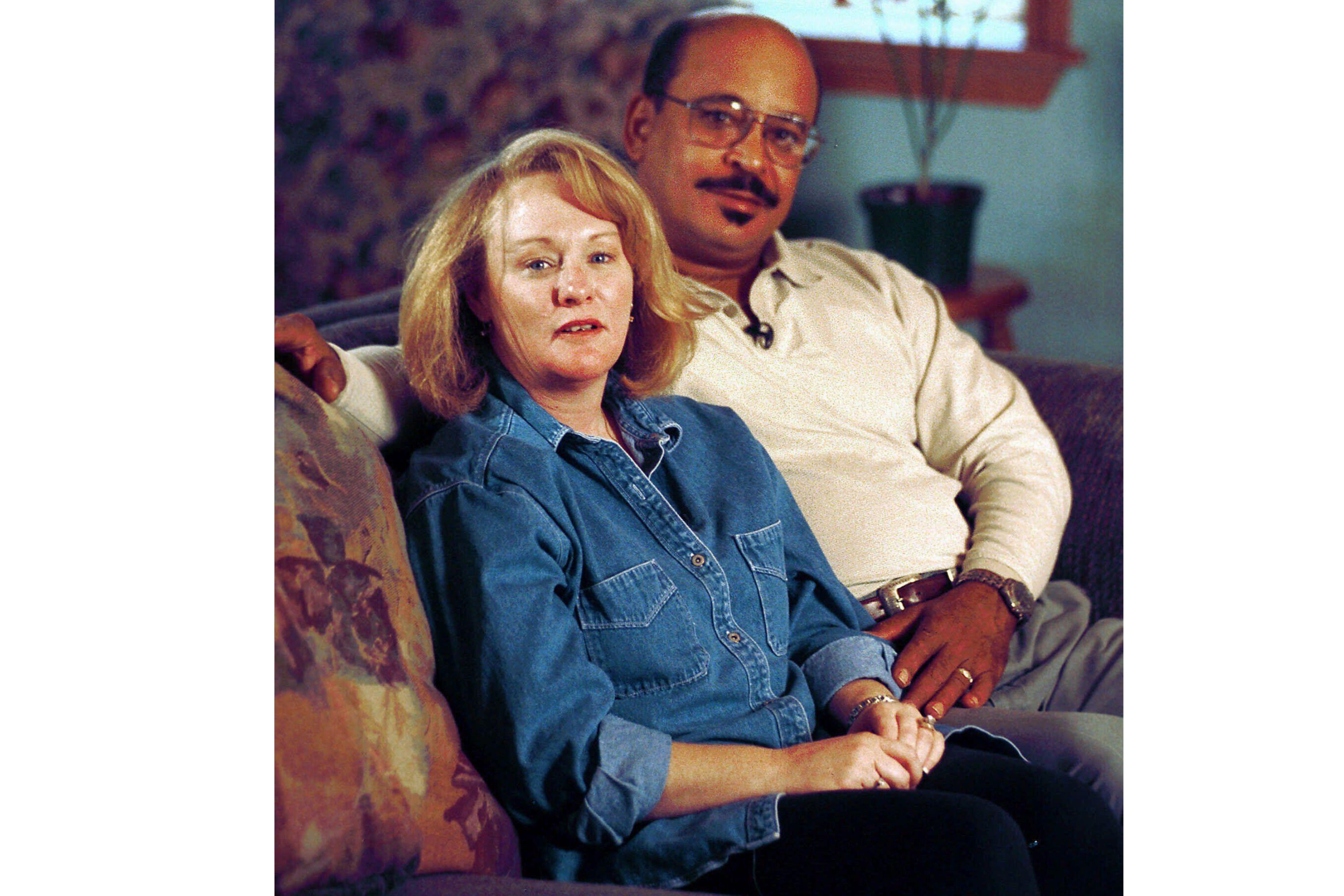What is the ‘cash for babies’ scandal and where are Alan and Judith Kilshaw's twins now?
The heartbreaking story of babies purchased over the internet


The 'cash for babies' scandal that rocked the world over two decades ago is back in the spotlight thanks to a new Channel 5 documentary - we look at events surrounding the incident, and what happened to Alan and Judith Kilshaw's twins.
Back in 2000 the world was shocked when a story broke involving three families, two continents, and babies being 'traded' online - Welsh couple Alan and Judith Kilshaw (pictured above) 'bought' children on the internet following a fertility battle. Events surrounding what's come to be known as the 'cash for babies' scandal were covered in the Prime Video documentary Three Mothers, Two Babies and a Scandal in 2022. However, such is the level of interest in the story, a new Channel 5 documentary discussing the events still has the public invested in finding out more details of the story.
The Baby Scandal That Shocked The World does cover the familiar ground of its predecessor, while also highlighting what happens when fertility issues lead to poor decision-making. Not just that, the story shines a light on adopting, the plight of single mothers forced to make questionable decisions, and the murkiness of the unregulated internet at the time the twins at the centre of the story became unwitting celebrities. We share events surrounding the incredible incident, and what is thought to have happened to Alan and Judith Kilshaw's twins.
What is the 'cash for babies' scandal?
The scandal involved a single mother from America allegedly selling her twins to two different couples for cash - once to another couple in the US, before snatching them back to be sold to different couple in the UK. A custody battle began between the two couples, with the twins eventually being given to a different family entirely.
In the late 90s, single mother Tranda found herself pregnant with twins while already raising three children alone. Feeling the best thing for the twin girls would be to have them adopted, she approached an online agency called Caring Heart - we found no evidence suggesting the organisation is still in operation, but it was investigated at the time by the FBI while vehemently denying they were involved in child trafficking.
When they were born, the Kiara and Keyara were placed with new parents Vickie and Richard who lived in California - it's alleged they paid £4000 for the children. There was thought to be an agreement the adoption would be open, meaning Tranda could visit the children and Vickie and Richard would keep her updated about their lives. Tranda was allowed to have the twins stay with her for a weekend visit on one occasion, but didn't return the girls to their adoptive parents.

Vickie and Richard Allen
In Wales, Alan and Judith Kilshaw already had four children of their own, but wished for more. When IVF failed, they looked into overseas adoption and found Caring Heart. The Kilshaws travelled to the US to meet Tranda who had kept the babies after snatching them from Vickie and Richard. She then took £8,200 from the Kilshaws who believed they'd adopted the twins and took them home to their farm in 2000, renaming them Belinda and Kimberley - Tranda had taken two sums of money for her children. Vickie and Richard were confused about what happened to the children they thought were theirs, and wanted them back.
Parenting advice, hot topics, best buys and family finance tips delivered straight to your inbox.
A custody battle and huge press coverage ensued. The High Court took the case and the twins were removed from the Kilshaws and placed in emergency foster care. During this time, the couple appeared on Oprah, Tranda was accused of profiting from her babies and 'selling' them online, and even then Prime Minister Tony Blair stepped in to share his opinions on the incident. The High Court eventually decided the girls should be returned to America.
Where are the Kilshaw babies now?
The last that was heard of the Kilshaw babies was in 2018, when The Mirror reported they were about to begin university. When returned to the US in 2001, they were once again placed with another family and have remained with those parents, who have kept their identities private.
They're now thought to have different names, and little is known about them since the report emerged to say they were studying social sciences. Their adoptive mother said at the time "At times it has been tough, sure it has, but they are our babies and we cannot be more proud of them. They have grown into fine young women, each with their own dreams and ambitions."
More recently, Judith Kilshaw told the BBC she often wonders what happened to the other families involved in the story, suggesting she'd like to see the twins again. She said "I think [the girls] have had a happy life and that's good. I leave the ball in their court. At least they know they [are] wanted by everyone."
Speaking about the legalities of the adoption, she concludes "It was perfectly legal - Britain accepted it... if I had broke the law I would have been in jail wouldn't I."
For more on very young children, we share why babies need to lie flat in a pram, and why 'dada' is usually a baby's first word. If you ever wonder how to play with a newborn, we've got some expert advice.

Lucy is a mum-of-two, multi-award nominated writer and blogger with six years’ of experience writing about parenting, family life, and TV. Lucy has contributed content to PopSugar and moms.com. In the last three years, she has transformed her passion for streaming countless hours of television into specialising in entertainment writing. There is now nothing she loves more than watching the best shows on television and sharing why you - and your kids - should watch them.